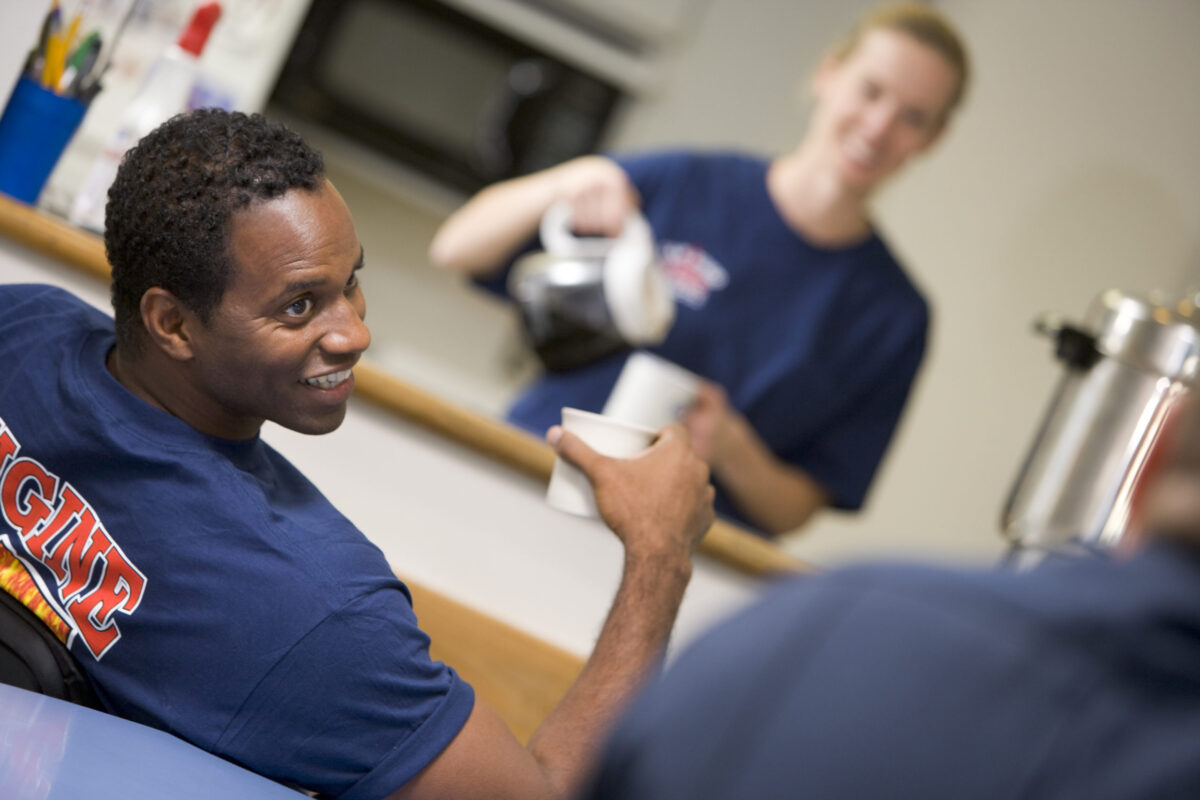
Peer Support Training
The stresses faced by fire fighters and emergency medical workers on the job – incidents involving children, violence, inherent dangers of firefighting and other potentially traumatic events – can have a cumulative impact on mental health and well-being. Peer support recognizes these risks and provides a lifeline to brothers and sisters navigating the complexities of our profession.
Designed by fire fighters, delivered by fire fighters
The IAFF Peer Support Training is delivered by master peer support instructors both in person and online. After completing the training, members have the necessary knowledge and skills to provide support to their peers, have a basic understanding of common behavioral health issues affecting the fire service, can serve as a bridge to community resources or behavioral health treatment when indicated, and are able to build or enhance their peer support programs.
Training Prerequisites
Participants first complete the online IAFF Behavioral Health Awareness Course. The free two-hour course is self-paced, tailored for the fire service. Information about accessing the prerequisite is emailed to each registered participant prior to the Peer Support Training.
The course is available to anyone, regardless of IAFF membership or participation in a Peer Support Training. To register for the Behavioral Health Awareness Course, visit the IAFF Online Learning Center Course Catalog.